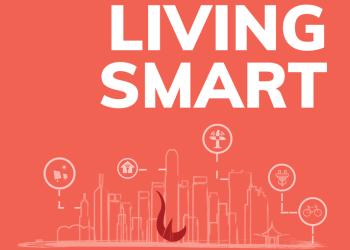News & Stories
2020
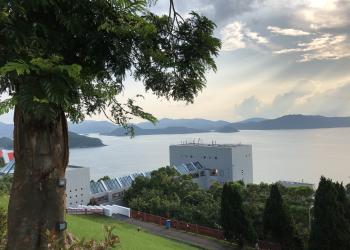
News
Using Sensing Technology for Sustainable Tree Management
“Every tree is a living thing,” says Prof. WANG Yu-Hsing, Associate Head and Professor of the Department of Civil and Environmental Engineering, while admiring a tree on the hillside near HKUST’s waterfront. Typhoon Mangkhut in September 2018 cracked the tree almost in half. Severely damaged, Prof. Wang thought it might not make it, but it did miraculously. What fascinates him most is the tree’s resilience and tenacity in withstanding adverse weather conditions that have become more rampant due to climate change. In order to monitor the tree’s stability, Prof. Wang has installed a smart sensor at its lower trunk to monitor its’ tilting angle.
The sensor mounted on the tree is developed by Prof. Wang and his research team who originally conducted a student-oriented project of using sensing technology on slopes seven years ago.
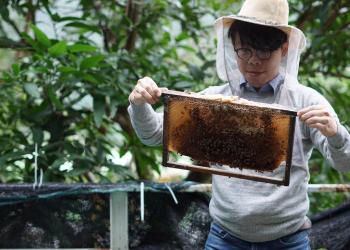
News
The Sweet Solution to a Global Crisis
Graduated with a BSc in Mathematics in 2011, Lancelot SHIR has taken a sweet and varied journey in life. A few years after graduation, Lancelot already had success with his first business — a tutorial center teaching mathematics — which he funded with two years of hard work of working.
As a local rock star tutor, it could have been all maths for Lancelot with his tutorial business achieving great results. However, he encountered a health problem in 2017 due to massive work pressure, and his life took an unexpected turn.
“I was suffering from a stomach problem and a friend of mine suggested I used raw honey to treat the problem. It worked a treat and I was suddenly catapulted into the world of honey and bees – I couldn’t stop learning and it changed my life,” he says.
2019
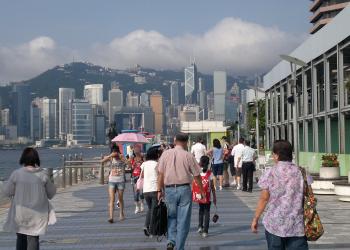
News
HK Set for Worst of It Amid Climate Change
This month, we experienced the hottest day of the year as temperatures in Hong Kong reached 35.1 degrees Celsius.
Countries across western Europe also struggled in record-breaking temperatures recently, with France hit the worst at 45.9 degrees in June.
The grim situation appears to have been a repeat of last year's conditions.
Although there are ongoing indepth analyses and further studies to examine the causes of individual extreme temperature events, many experts believe that extreme heat waves would not be feasible without anthropogenic climate change, meaning human activities are the main culprit for global warming ravages.
Such an assumption has been proven by climate models - a complex computer simulation of physical processes and mathematical formulae used mainly to predict climate and understand how the climate system responds to elevated greenhouse gas emissions.
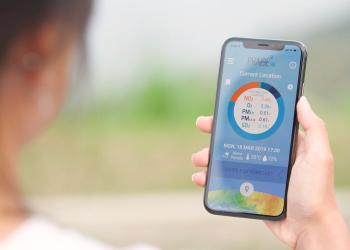
News
HKUST New App (PRAISE-HK) Uses Street-Level Air Quality Data to Reduce Personal Exposure and Health Risk
HKUST Institute for the Environment today launched a new mobile app that aims to help users reduce their exposure to outdoor air pollution. PRAISE-HK stands for “Personalized Real-time Air-quality Informatics System for Exposure – Hong Kong” and will help build Hong Kong into a world-class smart and healthy city. Funded by HSBC 150th Anniversary Charity Program, PRAISE-HK is a five-year project commenced in November 2016, and covers three major release milestones for the mobile app and the system:
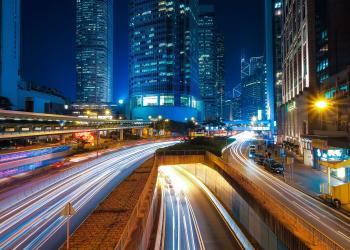
News
Let's Clear the Fog over Central Tolls
By Lo Hong-kam, Head and Chair Professor of Civil & Environmental Engineering, HKUST
Hong Kong is no stranger to traffic congestion and the government has mulled over introducing electronic road pricing in Central since the 1980s and public engagement over ERP was completed in 2016, but some vocal stakeholders, mainly private vehicle owners, have stymied such plans for decades.
I believe both policymakers and the media have failed the public by centering discussions on how a potential ERP system would impact on private car users when they are the minority in using the transportation system.
Only 10 percent of trips in Hong Kong use private cars and the rest rely on public transportation.
Let me explain why implementing ERP in Central would bring positive impact to the traveling public.
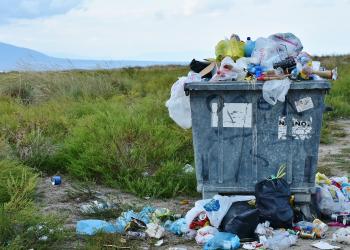
News
Let's Not Bottle It with Plastic Recycling
By Prof. Anirban Mukhopadhyay, Associate Dean (Undergraduate Studies) of Business and Management, HKUST
Distilled water manufacturer Watsons Water announced in January that it is installing 400 reverse water bottle recycling vending machines in town.
People who put used bottles into the machines will receive coupons or gift redemptions.
The purpose is to educate the public about reducing plastic waste, backed by greater financial incentives.
Given Hong Kong's rapidly filling landfills, I am surprised people don't recycle more regularly.
There is probably a mix of reasons for this, including a lack of awareness of the scope of the problem, the relatively low visibility of other people recycling, and, most importantly, the fact that it is still very inconvenient for most to recycle.
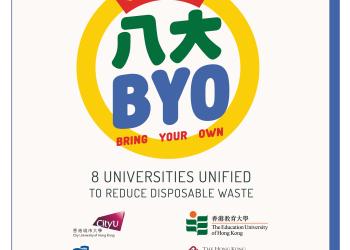
News
“UNIfy: BYO” – Joint Campaign by Eight Universities to Reduce Disposable Waste
With the success of the “UNIfy: Skip the Straw” campaign last year, eight UGC-funded universities will launch a “UNIfy:BYO” campaign on March 11, 2019 to reduce disposable waste.
The Campaign signifies the joint efforts of City University of Hong Kong, Hong Kong Baptist University, Lingnan University, The Chinese University of Hong Kong, The Education University of Hong Kong, The Hong Kong Polytechnic University, The Hong Kong University of Science and Technology, and The University of Hong Kong to reduce disposable waste.
This year, the BYO campaign is focused on the concept of “bring your own” where students and staff at all universities are encouraged to bring their own reusable items, whether it’s a bag, bottle or container, when purchasing food and other items on campus. The campaign hopes to reduce the use of disposable items and create a culture of using reusables across Hong Kong campuses.







